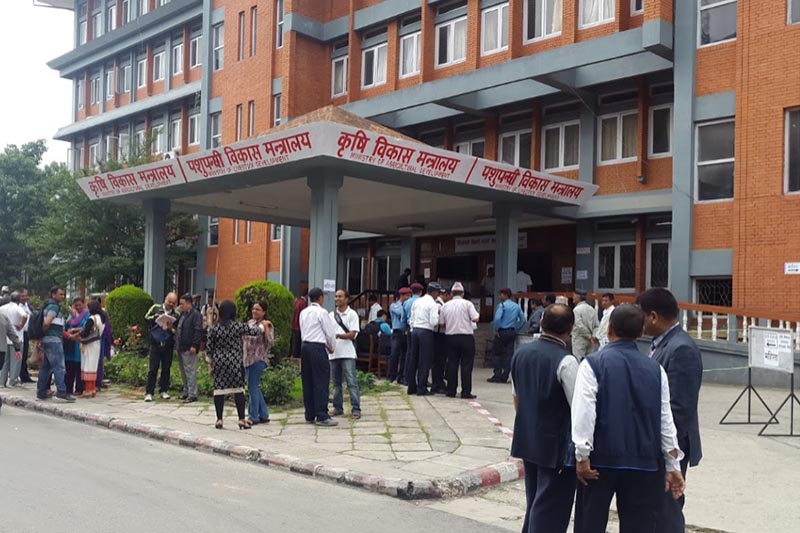Nepal initiates talks to buy fertilisers from India under G2G model
KATHMANDU, DECEMBER 24
Nepal has started a dialogue with Indian authorities to purchase fertilisers from the southern neighbour under the government-to-government (G2G) model.
In this regard, a virtual joint secretary-level meeting concluded today.
The Ministry of Agriculture and Livestock Development (MoALD) had initiated the process to import fertilisers from India via G2G process almost a year ago. However, due to several reasons the process got stalled mid-way.
However, as the ministry has committed to arrange fertilisers on time from the next fiscal year, the ministry has again started a dialogue with the Indian government, according to the MoALD . MoALD Joint Secretary Kanchan Pandey and his Indian counterpart Dharam Pal, joint secretary at the Ministry of Chemicals and Fertilisers of India, had participated in the meeting today.
As per MoALD, both sides have agreed to resume the process on fertiliser trade under the G2G model, but there was no further discussion today.
The Nepali team reminded the Indian authorities about the proposal made by Nepal last year for fertiliser import.
MoALD has also sought feedback from the Indian authorities on this proposal as soon as possible.
The ministry stated that the Indian authority has given a positive response on this matter citing that they are happy to take forth the procedures with needful discussion.
However, the next date for a meeting has not been scheduled yet.
Earlier, the ministry had stated that starting next year farmers will not have to face problems due to lack of fertilisers and distribution delays. As per this commitment, the ministry is exploring different avenues.
The Nepal government recently also signed an agreement with the Bangladeshi government to purchase 50,000 tonnes of urea, which according to MoALD will arrive within three months.
Similarly, MoALD has also started preparations to coordinate with the local governments to better ensure timely and sufficient import of fertilisers. The ministry has sent letters to all local bodies asking them to study and prepare a report on the quantity of fertilisers needed in their respective jurisdictions.
The ministry has asked the local bodies to submit their reports to the provincial committee by mid-February. The letter has mentioned that the report should also include the type of fertilisers the local governments need for their respective areas.






